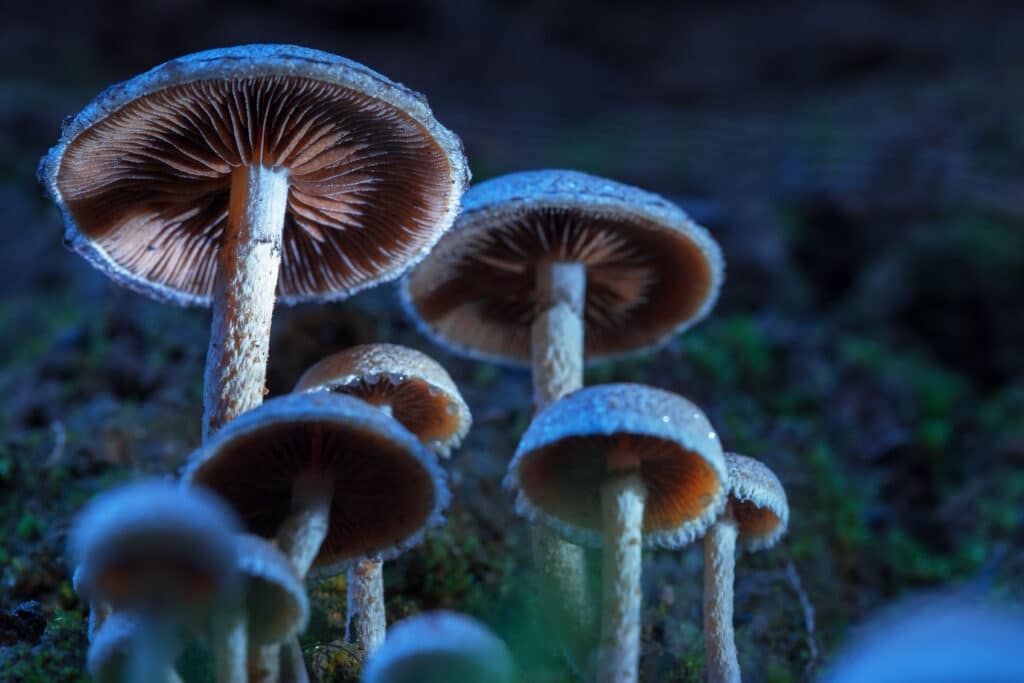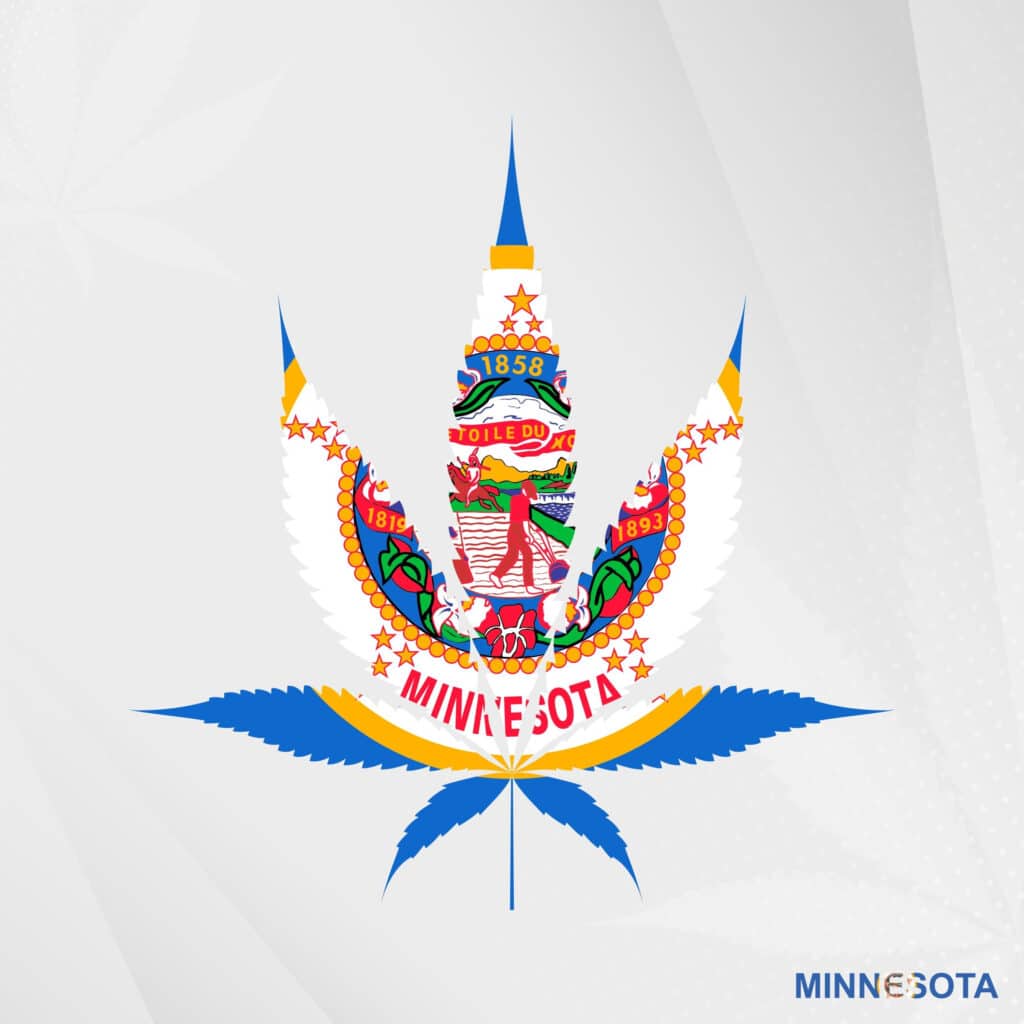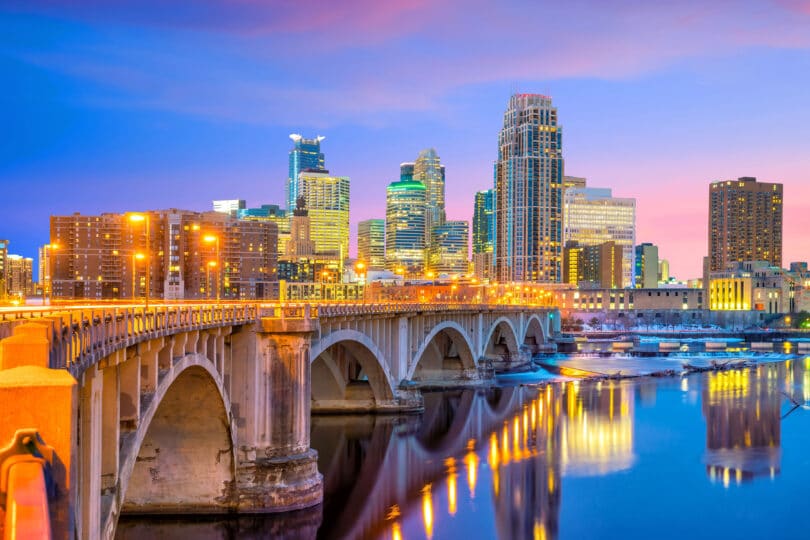Minnesota has been skipping along when it comes to weed, first with an edibles legalization in 2022, and then a full-scale recreational legalization in 2023. For some parts of the state, this isn’t good enough. Recently, Minneapolis took another jump forward with an executive order that decriminalized psychedelics. Read on for more info.
Minnesota decriminalized psychedelics
On July 21st, the Star Tribune reported that Jacob Frey, mayor of Minneapolis, signed an executive order that day which decriminalized psychedelics, to a degree. Much like many other locations that also decriminalized psychedelic drugs, like Berkeley, or Seattle; this is not a change to the actual laws of the city, but an order to law enforcement. So its not a legal decriminalization, but has the same general effect.
Under the new Minneapolis executive order, police must stop enforcing laws on possession and use of certain psychedelic compounds that are naturally derived from plants, like magic mushrooms, and DMT. Under the executive order, going after such cases, is now the “lowest law enforcement priority.” As stated, this is not a full change in laws. Getting a law through a state’s legislative system can take much longer, and opens it up to all kinds of edits and add-ons. This measure simply tells law enforcement to lay off, without having a governmental fight over it.
As per Frey in an interview, “I’m fairly certain there are a number of other incidents around the city that would require the assistance of an officer more than that.” He continued “I’m not saying, go out there and take shrooms. I’m saying the science backs the argument that this is an important tool in the toolkit for depression, trauma, and some of the deaths of despair that we’re seeing out there.”

What does this mean for residents?
The compounds aren’t legalized. As with all decriminalization measures, there is no passage of a drug law included. In this case, its not even a full legal decriminalization. As such, the drugs are technically still illegal; its just a matter of what officers will go after. Police can still enforce activities like selling and distribution, manufacturing, driving under the influence, or doing anything with these drugs around children.
The order is not specific, and has a wider reach than just local law enforcement. It also directs the police of Minneapolis to not help federal law enforcement with raids and seizure of products, like mescaline; when there is only a small amount involved. So not only will law enforcement not go after you for possessing and using certain substances; it won’t necessarily help federal law enforcement do it either.
In terms of what drugs just moved to the lowest priority for enforcement, the executive order covers entheogenic plants, and the compounds derived from them. This includes tryptamines (DMT, psilocybin, mescaline), phenethylamines (MDMA, MDA), and indole amines. This makes it more expansive than some measures which specify just a few plants like magic mushrooms, DMT-containing plants, those with mescaline, and iboga.
Some psychedelics, and similar drugs, are not decriminalized in Minneapolis. The executive order does not cover synthetic entheogens like MDMA, ketamine (which already enjoys a large gray market, though overpricing is hurting this), and LSD. These drugs are not covered by the executive order, meaning law enforcement is not directed to ignore the personal use of these drugs.
What pre-empted Minneapolis executive order for psychedelics?
Mayors don’t usually pull an executive order out of nowhere, there’s usually a reason to create this kind of a policy. In the case of what just happened, it does follow along with what’s going on in other parts of the country. It also follows along with what’s going on specifically in Minnesota. Not only has Minnesota quickly loosened its stance on weed, and opened a recreational market; but the state is also interested in doing more with psychedelics.
In 2023, several Minnesota lawmakers started supporting the creation of a task force to look into legalizing psychedelics for medicinal use. Campaign officiators push several arguments that back up use of the drugs in this way. The main points are as follows:

- That scientific studies show several compounds can help with treating psychological issues like depression, PTSD, and addiction.
- That getting rid of the stigma attached to these drugs is necessary for their further research and treatment uses.
- That the war on drugs caused great damage to communities of color, and created a massive racial injustice.
- That some of these compounds have been used traditionally by indigenous groups for religious and spiritual purposes, and that these drugs are attached to religious freedom.
Representative Andy Smith, who introduced the bill that contained the task force, said “The pandemic affected our whole population — even if they didn’t get sick — in our mental health. It’s put a real pressure on us as lawmakers to make possible for these important medicines to be studied, and then to responsibly be given to those who might need them and benefit from them.”
Minneapolis and cannabis
Minnesota is sure breaking out of its mold, even if this psychedelics decriminalization via executive order, is only for Minneapolis. In other ways, we can see the progress of the state more clearly, like with weed. In a matter of a couple years, Minnesota changed tack entirely.
Minnesota was having issues coping with its black market, and this was when there was only a medical legalization. Part of this had to do with the cannabinoids market, which features compounds like THCA, and delta-8 THC; products which are embroiled in a general debate of legality. Ever since the 2018 US Farm Bill, such products are available, but how legal they are, is not a uniform opinion. Minnesota noticed some of the inconsistencies this federal legalization caused – particularly with CBD, and created its own reform to iron out the creases.
What came out of it, was a (somewhat) surprise legalization of hemp-derived THC edible products. Without passing a formal legalization for cannabis in general, the state adopted a policy to allow a sales market for hemp-derived products, including THC. And nearly immediately, it also realized the issues therein with regulating such a market, and the proliferation of the black market along with it.
The law allowed for adults 21 and above to access the products, which could have up to 5mg per serving, and 50mg per package. As THC from hemp and THC from marijuana are identical, it means the state did legalize the possession, use, and sale of THC.

The reality is, with that legalization, Minnesota inadvertently, and backhandedly, made itself the 23rd legalized state. It didn’t, however, enter into the list of legalized states, until this year; when it passed a formal recreational cannabis policy. On May 20th, after passing a Senate vote, the bill was sent to Governor Tim Walz’s desk. He signed it on May 30th.
Psychedelics in the US
This trend is all over the US. Around 20 individual locations like Minneapolis have decriminalized psychedelics in come capacity, and it doesn’t stop there. Two states officially passed legalization measures – Oregon and Colorado; though they vary in what they allow. Colorado is significantly more permissive, covers more drugs, and has more lenient use laws. Though pricing is not released for Colorado; the first licensed mushroom services retailer in Oregon did make clear that regulatory measures will make prices very high.
Beyond this, other states are also making headway with a variety of psychedelics bills. Some are for recreational legalization laws that vary in what they allow; some are pushing medical legalization measures, that also vary in what they contain; some seek wide-reaching decriminalization measures; and some just want research initiatives.
The House of Representatives in Rhode Island recently passed a bill, which is now in the state’s Senate, since June 12th. This bill would mainly allow psilocybin. Connecticut’s law to legalize psilocybin, also already passed its House. Other states with active legislation, include Hawaii (psilocybin for medical purposes), California (entheogens legalization), Georgia (entheogenic plants decriminalization), Illinois (medical psychedelics), Maryland (alternative cures for PTSD), and Massachusetts (legal medical use MDMA and psilocybin), among several others.
Conclusion
Minneapolis joins many other individual locations and states, which have decriminalized or legalized some amount of psychedelics possession and use. Perhaps in the next couple years, the entire state will follow suit.
Hello drug enthusiasts! We appreciate that you’re here with us at Cannadelics.com, where we work daily to get you the best in reporting for cannabis, psychedelics, and well beyond. Make sure to come by regularly for updates; and sign up to the Cannadelics Weekly Newsletter, so you’re always up on the latest news.









